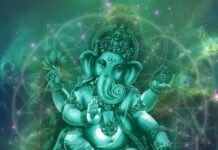Your own mind is your best friend or worst enemy, depending upon how you relate to it. The mind is the part of your nature closest to your inner Self, but also connected to the external world and its influences, which usually rule over it. Much of what we call our minds is not ours but the opinions and emotions of others. We must learn to go back to our core awareness, for which the mind is but an instrument of expression.
By David Frawley
What is Your Mind Breeding?
The mind easily accumulates negative thoughts, conflicting emotions and disturbed sensations down to a subconscious level, often compulsively and without our direct awareness. There rajasic and tamasic based agitated and destructive energies get planted, dulling our finer sattvic sensitivity and blocking our connection with our true consciousness. Yet we seldom examine what our mind is breeding and how its negativity may erupt within or around us.
The human mind tends to be negative. It likes to criticize, reject and denigrate to establish its own superiority as it is a product of the ego. The mind doesn’t like to agree and prefers to take a contrary position. We can see this mechanical function of the mind by asking people not to think of a monkey. They will certainly think of a monkey. Telling a person that something is not what they want makes it more desirable to them. Such is the dualistic nature of the mind.
Our minds can disturb us with fear, suspicion and doubt, imagining every sort of problem, difficulty and calamity as if these formed our ultimate destiny. Our thoughts breed negative emotions of attachment, greed, envy, jealousy and anxiety. They create anger, conflict, and agitation, often mirroring back to us the problems we have with other people, allowing our opponents to function within our mind space by the power of our own disturbed imagination.
We revel in violence, war and destruction in the films that we watch, finding pleasure in scenes of decimation, when we would never approve or follow such cruel behavior ourselves. We let people into our minds that we would never let in to our homes.
The media knows this negative nature of the mind and promotes dangers, outrage and highlights disasters in the news. This mentality now extends to the social media as well. Politicians manipulate the negative nature of the mind. Negative emotions like fear and anger more likely gets people to vote than positive feelings of peace and prosperity.
Shatru Buddhi, the Inimical Mind
This negative side of the mind is called shatru buddhi, which literally means the intelligence or cunning of the enemy. Vedic prayers for peace and healing ask for the destruction of the shatru buddhi, which has been translated superficially by western academics as literally the minds of our enemies. Shatru buddhi is the inimical mind within us as well as the inimical mind in others.
We can observe this inimical mindset in arrogant intellectuals, particularly of a political bent of mind, who become fanatics for an ideology trapped in a exclusivist view of life. They engage in intellectual warfare with their enemies but have never looked within to their deeper consciousness beyond duality.
This inimical mind is the “rajasic buddhi”, the intellect ruled by the quality of rajas meaning, pride, ambition, aggression and greed. It has a bias and agenda that it will enforce regardless of the data it examines or the other points of view that it hears. We must learn to question this not only in others but also in ourselves.
Cultivating Your Mind as a Friend
Cultivating your mind as a friend means first of all being aware of your thoughts on a daily basis. If we cast the light of awareness on our compulsive mental activity it immediately becomes lighter, more illumined and begins to change.
Observation is a state of detachment in which the mind’s turbulence immediately gets reduced. If you are aware of your anger it naturally gets diminished because you have stepped aside from it. You are no longer feeding such negative thoughts with your power of attention. You are no longer taking the anger as your own but observing it as a mental reaction that the undisciplined mind of anyone can fall into. Anger in fact is the same in everyone, a compulsive emotion that veils our true awareness.
We must learn to consciously examine our thoughts. If fear comes up we should ask our minds where the fear comes from, if it has any validity or what is consequences may be. We should question our minds and ask why they are bringing up an unnecessary instinctual fear when we can better judge situations from a place of detached awareness. We must awaken the inner force of higher intelligence to question the conditioned and distracted mind that we usually blindly follow and identify with. You should direct your mind from a place of inner seeing, not have it direct you according to its subconscious compulsions. Once we question our minds from a state of higher awareness they become silent.
The higher sattvic or detached buddhi is connected to the guru, the higher teachings, cosmic intelligence and the inner Self. It can overcome and remove the inimical shatru buddhi that draws us into agitation and duality. An inner revolution in the budddhi occurs when we learn to discriminate between the eternal and the transient, being and non-being, Self and not-Self, happiness and sorrow. This is a key principle of Yoga and Vedanta. Cultivating detachment and discrimination (vairagya and viveka) allows us to overcome the inimical mind and turn it into a friend, making us humble before our inner Self of pure consciousness beyond the mind. Compassion and devotion are powerful aids in this process.
The mind that is turned within to the light of consciousness is your best friend. The mind that is turned outward into dualistic emotions is your worst enemy. Cultivate a friendly mind both to others and to yourself. You can do this by wishing well to all, peace and happiness for all, in recognition of the one Self in all beings and the entire universe.
Article Courtesy : www.vedanet.com








